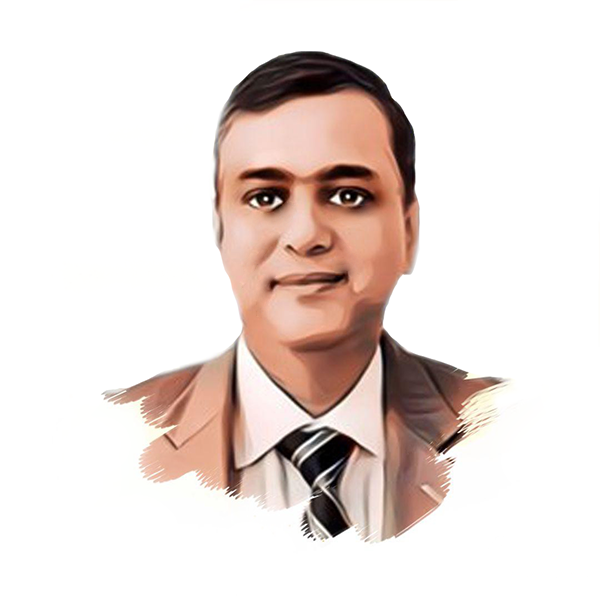Transforming Outsourcing Services
Q: Anup, you have worked in the financial services industry for over 25 years, with senior roles as both a provider and consumer of professional and technology services. How have you seen the services market evolve over the past 20 years? What key trends have you observed?
A: There have been changes over the last 20 years, but unfortunately the industry has not evolved as much as it could or should have. We still see significant inefficiencies in terms of operations and legacy technology.
Fortunately, we can now leverage a range of digital transformation technologies such as public cloud, AI/ML, automation (including robotic process automation or RPA) and open architecture/APIs. These, along with advances in providing digital customer experiences, are helping firms achieve operational alpha and drive cost transformation the industry desperately needs.
Sustained fee pressure, regulatory complexities, cybersecurity risks and the need for digital agility are forcing firms to transform themselves to survive. Service providers including Linedata must evolve and reinvent their offerings and business models to remain relevant. Examples of this include growing traction for the “As-a-Service” model delivered through the cloud, along with the integration of software, services, and data, and these will continue to become the norm. Hedge funds and other alternative players also need to convert their fixed cost into a variable cost structure (‘variabilization’) and have the agility to launch new funds and bootstrap their operations.
Lastly, the ability of service providers to manage the ever-growing complexity of investment strategies and asset classes more efficiently than the asset and fund managers themselves will drive greater adoption of globally dispersed, outsourced operating models.
Q: How has COVID-19 affected the services market? What did 2020 teach us in terms of the benefits / challenges around outsourcing services?
A: Overall, COVID-19 drove additional outsourcing of middle office and back office services. On the flip side, it has impacted the revenues associated with new fund launches due to the general slowdown in new launches. Project-based initiatives and consulting spending were squeezed significantly as companies focused on conserving cash and reducing technology and operational outlays by suspending longer-term initiatives.
While the full impact of the pandemic remains to be seen, 2020 taught us several important lessons:
- There is a huge need for greater resilience in terms of operating models and infrastructure, as well as the ability for fund managers and service providers to operate remotely.
- Hedge funds and other alternative players cannot ignore the business imperative to reduce costs and have variable expense structures through additional outsourcing across operations, technology, and support services.
- Greater adoption of “As-a-Service”-based models and public cloud will continue as firms partner with outsourcing and managed services providers, especially those which like Linedata can offer a winning combination of industry and operational knowledge and technological expertise.
- Cybersecurity and need to operate securely (particularly in the COVID-19 / home-working context) have become top priorities for CEOs and COOs. Additionally, the pandemic has amplified the need for PE firms to protect their investments and roll out managed cybersecurity programs in partnership with trusted managed services providers (MSPs).
Q: What do you expect 2021 to bring in terms of trends, challenges, and opportunities?
A: 2021 promises to be a continuation of 2020 in many respects. The asset management and alternative investments industry will continue to be challenged and will likely show a strong focus on exotic and boutique investment strategies.
We expect clear winners and losers to emerge in the service provider community based on their ability to handle the operational challenges and increased sophistication of investment strategies. Players that exhibit resilience, implement variabilization, and drive automation and digital transformation will emerge as winners. This is both a challenge and an opportunity for firms like ours. At Linedata, we have been making this transition over the past few years and are well-positioned to succeed in this industry dynamic.
Q: How do you expect managed services to evolve in the next 5 years?
A: First, the managed services model will become broader in scope, with a combination of platform, operations, data, and cybersecurity services delivered on a fixed price or unit price basis.
Second, public cloud will become the industry standard. Service providers will play an important role in helping established fund managers bridge the gap between legacy systems and cloud-native technology.
Third, we can expect “open API”-based architecture that integrates third-party products and solutions into the service model to increasingly become the norm.
Q: Insourcing / outsourcing / co-sourcing: do you see the model shifting, given the greater flexibility around remote working brought on by the pandemic?
A: We expect to see a few different trends play out that are not competitive with each other.
- Greater adoption of outsourcing to take advantage of the variable expense model
- Co-sourcing of some outsourced activities for greater control and flexibility while leveraging partner solutions and services.
- A shift from traditional hubs like New York or Chicago to nearshore and low-cost locations. When the businesses reopen their offices, quite a few firms are likely to evaluate their footprint and reconsider the need to be in high-cost locations.
Q: What is your vision for Linedata’s Global Services business? What can the market expect to see from Linedata over the next five years?
A: I really like our position at Linedata, particularly our company-wide business strategy of combining software, services and data powered by deep industry expertise. In my experience, no other provider can match the breadth of our offering to deliver digital transformation-led operational efficiencies and cost transformation.
With that in mind, I’m confident that our Global Services business is poised for growth with a diverse client base, a wealth of in-house knowledge, and a track record of successfully forming strategic partnerships that enhance our internal capabilities. Work is already underway to further leverage technology to extend and digitally transform our Risk and Research, Middle and Back Office, and Technology Services.
Each of these offerings will have three foundational elements:
- Linedata software applications as the platform of choice to deliver managed services through the cloud in a “As-a-Service” construct.
- Industry-leading third-party solutions as part of an open API framework to maximize transformative value. For instance, Linedata is in the process of launching a digital Risk and Research Services offering that leverages the AI/ML and cognitive capabilities of a partner solution to automate processes across the value chain.
- Embedded market data and analytics delivered as part of a managed services offering. Given these strengths, and the transformational change required by the industry, I am confident that Linedata will realize its true potential as a market leader and service provider of choice for the alternative investments and asset management industries.
About the author, Anup Kumar
 Anup Kumar is a seasoned leader with 30 years of industry experience in Investments and Insurance. He is currently EVP & Global Head of Services at Linedata and leads all aspects (Operations and Technology) of Linedata’s Global Services business. Linedata’s full Services portfolio for buy-side firms includes Front Office, Middle and Back Office, Advisory, Cybersecurity, and Managed Services Provider (MSP). Anup’s career experience spans the Asset Management, Healthcare, Insurance, and Retirements industries, where he has held executive roles including President and CEO, Board Member, JV Head, and Business Head. He has led businesses of up to $350M in annual revenue at leading outsourcing services firms, including Capgemini, Hewitt, EXL, Patni and Tech Mahindra. Before joining Linedata, Anup was doing CXO Advisory for Institutional buy-side clients and mid-market private equity firms.
Anup Kumar is a seasoned leader with 30 years of industry experience in Investments and Insurance. He is currently EVP & Global Head of Services at Linedata and leads all aspects (Operations and Technology) of Linedata’s Global Services business. Linedata’s full Services portfolio for buy-side firms includes Front Office, Middle and Back Office, Advisory, Cybersecurity, and Managed Services Provider (MSP). Anup’s career experience spans the Asset Management, Healthcare, Insurance, and Retirements industries, where he has held executive roles including President and CEO, Board Member, JV Head, and Business Head. He has led businesses of up to $350M in annual revenue at leading outsourcing services firms, including Capgemini, Hewitt, EXL, Patni and Tech Mahindra. Before joining Linedata, Anup was doing CXO Advisory for Institutional buy-side clients and mid-market private equity firms.
Digitally driven services
Linedata Global Services are helping firms digitally transform their operations, with three new managed services and co-sourcing solutions:
Cognitive Investment Data Management uses AI/ML technology to expand market coverage without adding headcount and associated costs. It provides data, analysis and intelligent insights so front-office teams can make smarter decisions and scale to grasp new investment opportunities without adding applications or overhead.
Our Expense Management Solution transforms back-office operations with a service built on best practices and a best-in-breed digital platform. We transform your manual vendor management and expense allocation processes into digital workflows that mitigate risk and free up internal resources for higher value-add activities.
Linedata Protect, and Linedata Protect Premium, our Endpoint Detection and Response (EDR) and Managed Detection, Response and Remediation (MDRR) offerings bolster your cybersecurity protection with an all-inclusive offering based world-class technology from leading providers and over 1 million endpoints already being protected.



